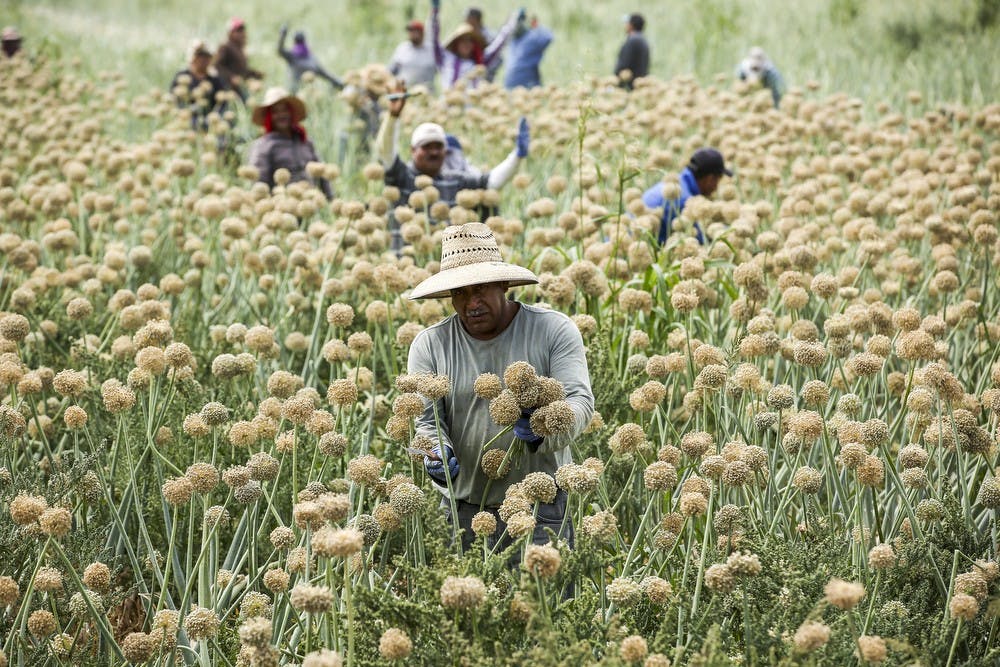Food is livelihood. While most of us merely find and purchase whatever food we can get our hands on, there are those among us that need assistance to get nutritious local food. In fact, even some of our college peers lack the resources to maintain proper nutrition. This brings me flashbacks to my dad joking about living off of Top Ramen in college when he went to ASU.
The truth is that the city of Tempe lacks a sufficient local food network. This is a major problem in terms of sustainability, climate change and many other ethical concerns. But of more immediate concern to us is how it contributes to local malnutrition. Even though this issue affects everyone, those of us who really suffer are impoverished individuals, who have little to no choice over their food options, as well as those who care about the nutritional and ethical sourcing of their food products.
How could it be that one of the leading developed countries, often considered the most prosperous nation in the world, lacks the ability to provide each citizen with the basic survival necessity of food? More so, most of our food lacks quality we could afford to acquire.
I have always been baffled by the lack of food surrounding us. We have developed our landscape in principle to improve our livelihoods, but somehow we have thwarted some aspects of nature that were really beneficial to humankind. One of those things being an ability to hunt, scavenge and come across free food.
Under human domain, food systems have become extremely complex networks.
How often do you wonder where your food comes from? If it is bought at any old supermarket, then it is very probable it is not from here, but rather from another state, even another country.
Lack of access to local foods is associated with less nutritional options, and in extreme cases, food deserts, which limit those who can't afford time or money to go out of their way to order obtain nutritious food.
There are efforts being made to promote a local food network, such as the ASU Farmers Market, happening every other Tuesday, which started this year on Oct. 6, as well as the Farmers Market on University and Farmer.
Arizona’s cities, specifically the city of Phoenix, have a long history of agriculture, despite how it may seem. Through the years, development has pushed farmers and local food production out of this area and out of priorities.
Today, Phoenix is doing a much better job than Tempe in a lot of areas of sustainability, including local food systems. Tempe would benefit from trying out a few of the ideas Phoenix has put into action including investing in the slow food movement, urban gardens, edible tours and bringing food awareness to local schools. All of these initiatives in Phoenix serve to satisfy the lack of community-wide nutrition and access to food, as well as appease those who have the means to buy food, but yearn for more sustainable options.
One of the main drivers of urban farms and community gardens is the tax imposed on vacant lots. With this in mind, Phoenix has pushed to transform all vacant lots into garden spaces and utilize these areas for food production. This same ideology could turn this problem around in Tempe by offering community members with healthier, cheaper choices, as well as create an overall more forward-thinking and aesthetically pleasing city.
Related Links:
Food sustainability growing across ASU
What are we doing with the leftovers?
Reach the columnist at ralydfor@asu.edu or follow @ralydford on Twitter.
Editor’s note: The opinions presented in this column are the author’s and do not imply any endorsement from The State Press or its editors.
Want to join the conversation? Send an email to opiniondesk.statepress@gmail.com. Keep letters under 300 words and be sure to include your university affiliation. Anonymity will not be granted.
Like The State Press on Facebook and follow @statepress on Twitter.




